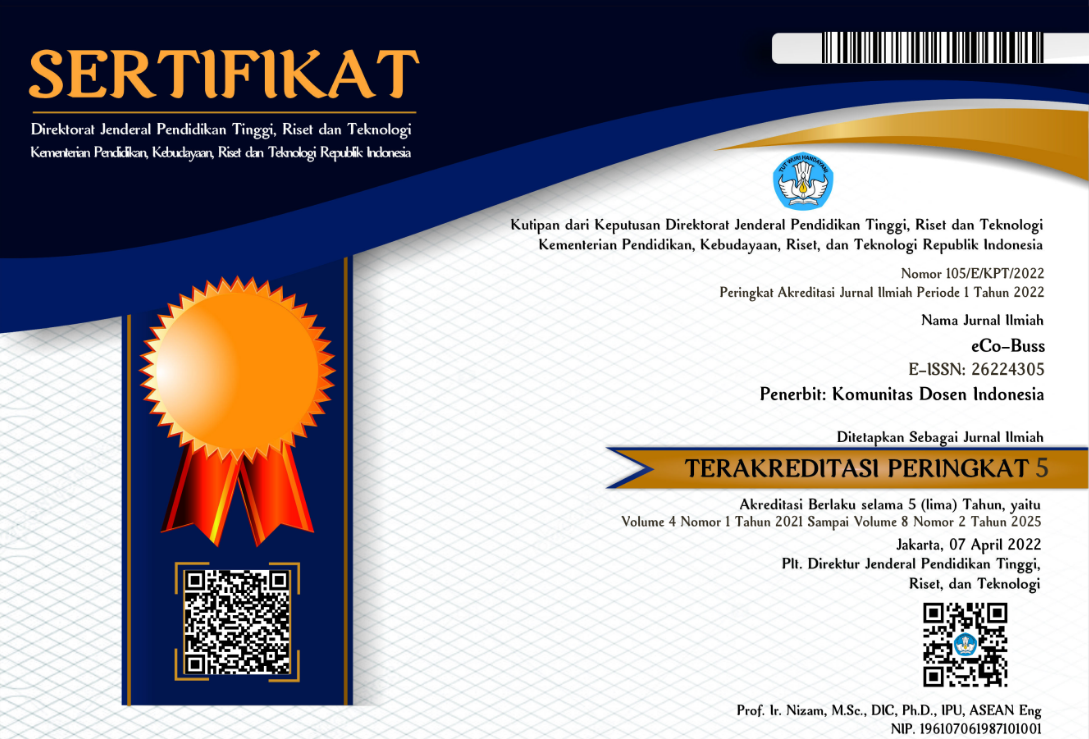Analysis of the Effect of Accounting Information Systems on the Accuracy and Reliability of Financial Statements at Shipping Industry Companies in Surabaya
DOI:
https://doi.org/10.32877/eb.v6i3.1091
Abstract
In the contemporary economic landscape, the indispensability of computerized systems, particularly Accounting Information Systems (AIS), is paramount for effective economic activities. This research addresses the knowledge gap surrounding the impact of AIS on the accuracy and reliability of financial statements in the shipping industry companies in Surabaya, Indonesia. The study employs a causal research design with an associative and quantitative approach, involving 57 participants related to AIS in the shipping industry. Utilizing the Integrative Framework of AIS by Romney and Steinbart (2015) and the Financial Reporting Credibility Theory by Dechow and Dichev (2002), the research aims to provide a comprehensive understanding of the relationship between AIS, accuracy, and reliability of financial statements. The findings reveal a positive correlation between AIS implementation and the quality of financial statements, emphasizing the need for effective AIS integration to enhance financial reporting in Surabaya's shipping industry. These results contribute valuable insights for practitioners, researchers, and management in optimizing AIS to support business sustainability and stakeholder confidence amidst dynamic market changes.
Downloads
Downloads
Published
How to Cite
Issue
Section
License
Copyright (c) 2024 Gracesheila Florencia Tumbelaka, Nurafni Eltivia, Nur Indah Riwajanti

This work is licensed under a Creative Commons Attribution-ShareAlike 4.0 International License.






 DOI :
DOI :
 Abstract views: 360
/
Abstract views: 360
/  PDF downloads: 242
PDF downloads: 242

